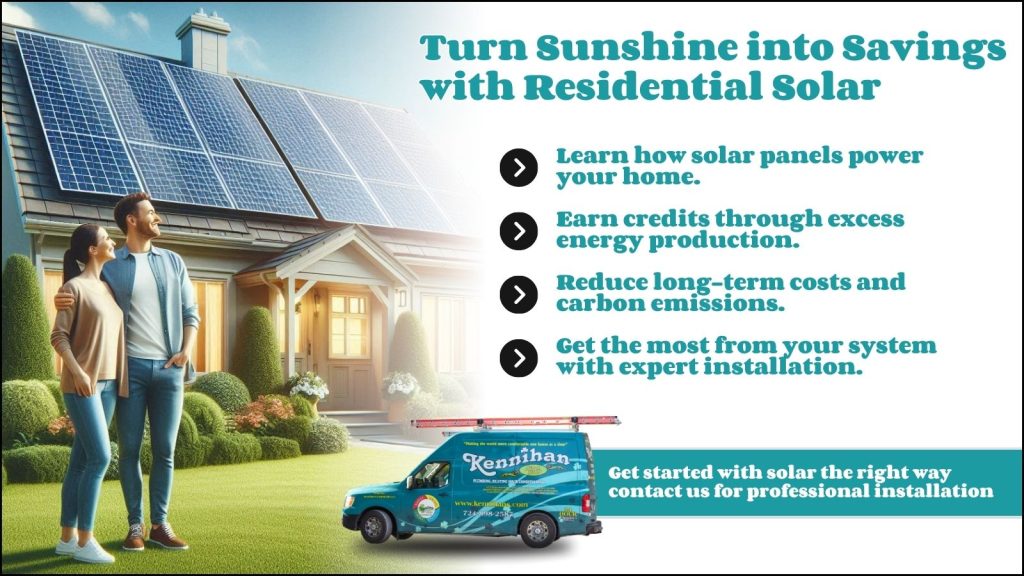In today’s world of rising energy costs and environmental awareness, more homeowners are turning to solar panels as a smart investment. Not only do solar panels reduce reliance on fossil fuels, but they can also lower utility bills and improve a home’s overall energy efficiency.
Let’s break down how solar panels work, how they can feed energy back into the power grid, and why professional installation is essential for getting the most out of your solar energy system.
We are proud to offer professional solar panel installation in Butler, so call us when you’re ready.

How Solar Panels Work
At the heart of a solar energy system are photovoltaic (PV) panels. These panels are typically installed on a home’s roof, where they can capture the most sunlight. Each panel contains cells made of semiconductor materials—usually silicon—that absorb sunlight and convert it into direct current (DC) electricity.
This DC electricity is then routed through an inverter, which transforms it into alternating current (AC), the type of electricity your home appliances and lighting use. From there, the AC electricity flows through your home’s electrical panel to power everything from refrigerators to phone chargers.
Feeding Energy Back Into the Grid
One of the most appealing features of solar panels is their ability to generate excess electricity, especially during peak sunlight hours. If your system produces more power than your household consumes, that surplus energy doesn’t go to waste. Instead, it can be sent back into your local power grid.
This process is known as net metering. When your solar system sends electricity to the grid, your utility company may provide you with energy credits or refunds. These credits can be applied to your monthly utility bills, helping you save even more money. In some cases, homeowners generate enough power annually to completely offset their electric bills or even earn a small profit.
Boosting Home Energy Efficiency
Solar panels don’t just reduce your energy costs—they improve your home’s energy profile. By generating clean, renewable power on-site, you reduce the amount of energy that needs to be pulled from the grid. This means fewer transmission losses, reduced strain on public utilities, and a smaller carbon footprint.
Solar panels are especially effective when combined with other energy-efficient home upgrades like smart thermostats, LED lighting, and well-insulated windows. Together, these improvements can significantly reduce your home’s overall energy consumption and increase its resale value.
The Importance of Professional Installation
While it may be tempting to consider a DIY solar panel setup, solar energy systems are complex and require precise planning, permits, and electrical connections. For this reason, professional installation is essential.
Licensed solar installers assess your home’s energy needs, roof structure, and local regulations to design a system that maximizes efficiency and safety. They also handle the permitting process and ensure your system meets local building codes and utility requirements for net metering.
Improper installation can lead to system underperformance, roof damage, or even fire hazards—issues best avoided by trusting the job to certified experts.
Contact Kennihan Plumbing & Heating, Inc. today to schedule an appointment!

